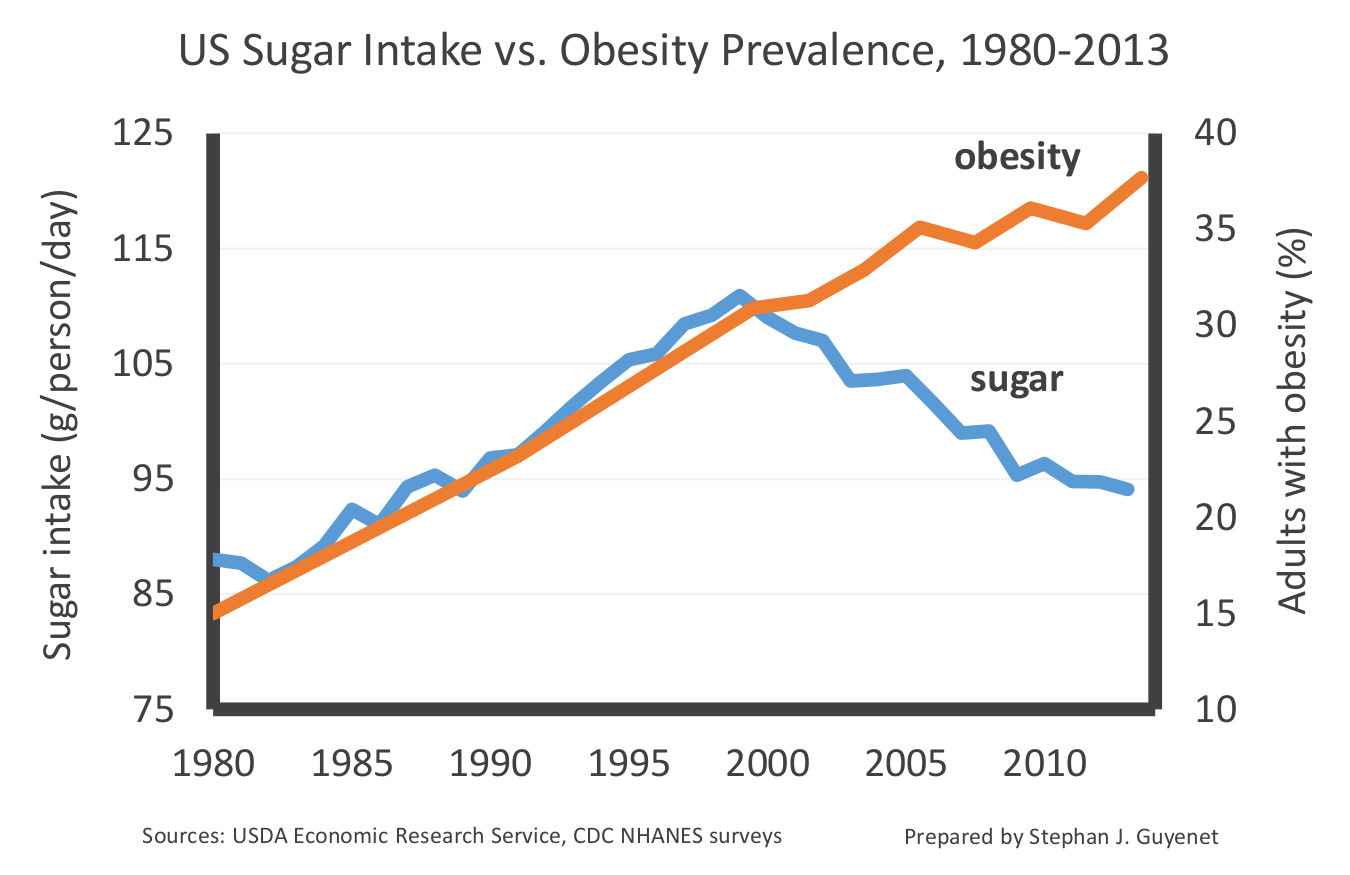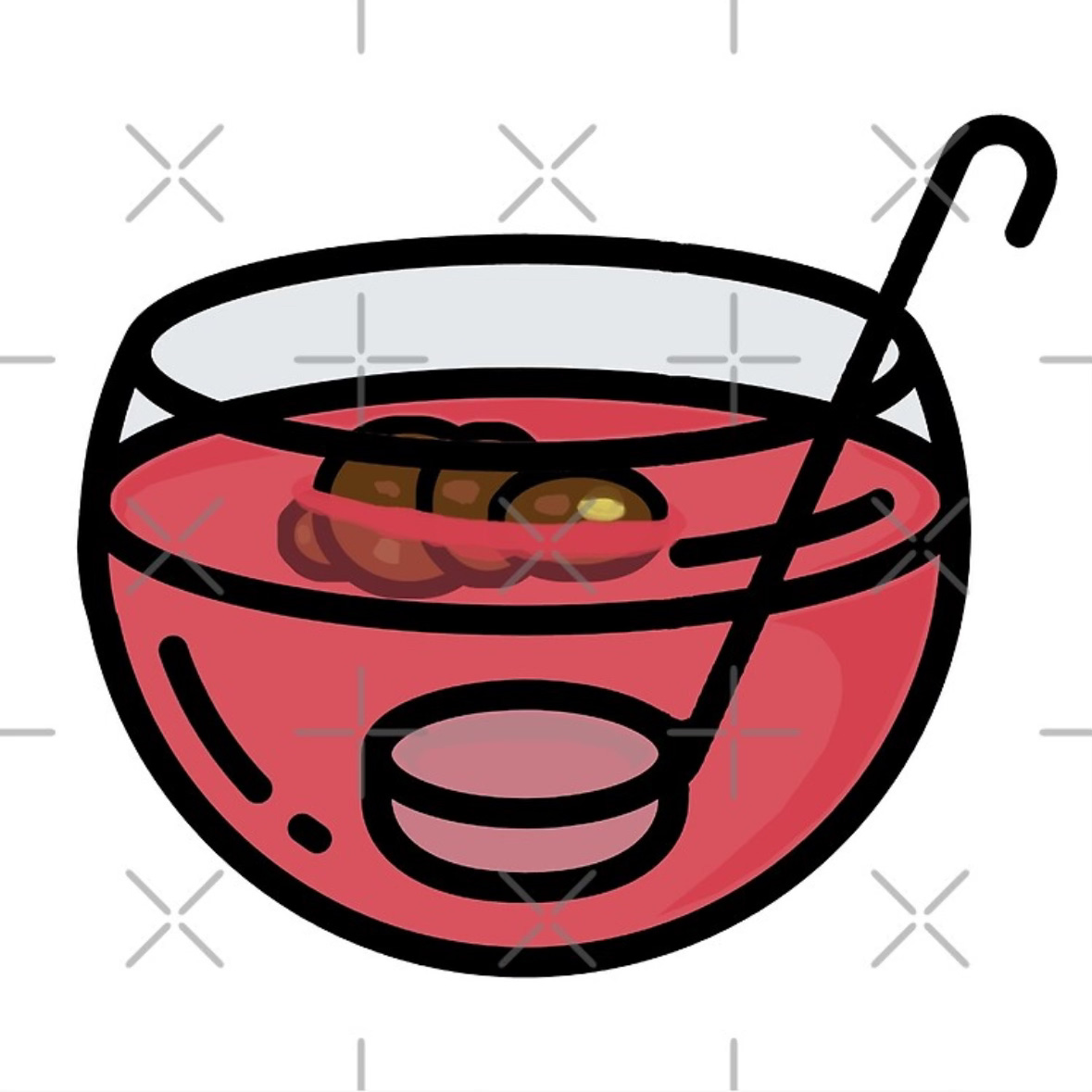X/O, 1/0, good/bad, right/wrong, healthy/unhealthy.
Categorize and move on. This had been my way for so long.
Last night I made the mistake of announcing to a room filled with those I care for the most in the world, that I didn’t think RFK Jr. would in fact be able to make America healthy again. It was as though I’d dropped a turd in the punch bowl, sat back and laughed as those around me looked on in horror, then, digging my heals in, formulated an argument for why turds in punch bowls were not only festive, but tradition.
“You cleared the room!” my wife Brandy reprimanded later, “and you enjoyed it!”
In my heart of hearts, I am generally open and respectful of people’s beliefs. I find religious adherence to be aesthetically pleasing, and appreciate the moral structures they seem to provide. I believe that there can be a multitude of truths, that we each view the world from a unique vantage, based on our accumulative experience, and that especially in regards to likes and dislikes, can exist with broadly divergent ideas of good and bad and right and wrong. I often find myself imagining that the weight of any argument or disagreement, if looked at with the seriousness of arguing over ice cream flavors, would collapse beneath it’s own irrelevance. I have no feeling within me of a need to alter people’s preferences, and even less to sway their religious beliefs. If someone were to say to me, “la ilah’a illa Allah,” “Baruch Hashem,” “I and I,” or express an affinity or disagreement with the Pope’s direct line to the Almighty, I experience absolutely no urge to sway anyone to my understanding of a Higher Power.
This isn’t entirely true. My oldest friend once told me he detested beets, and it became a mission of mine to serve them to him in a way he found a notch above palatable. The absolutes dwindle and die on the vine with me. I want to believe that I can allow everyone their preferences, but even that idea withers under real scrutiny.
I find with those I come into contact with, even when beliefs are deep seated and absolute, there is the recognition that generally they are beliefs without objective evidence. Many find faith in their chosen religion but recognize it as religion. This has obviously not been globally uneventful, the need to convert or bend, to proselytize has played a role in much bloody conflict. Though there does seem to be the distinct recognition between objective and subjective beliefs.
Ice cream exists, objectively. French vanilla is the best flavor, subjectively (but also unquestionably).
I find some ideas around health have taken on the fervor of religion but aren’t being recognized as such. I think that recognition would allow for agreement to disagree. I say that kinda half kidding, because the evidence of religious intolerance is fairly ubiquitous. The argument over health all seems to be done with the idea of objectivity in mind. “Processed food is bad for your health” as an absolute statement of objective fact, is quite dissimilar to something that recognizes the subjective nature of health, like “I lost weight and felt better when I reduced my intake of processed food.” The athiests and agnostics seem to be waging pitched religious battles, with little to no recognition that they are as zealoty as anyone going to church.
Religon, definition 1, “relating to or manifesting faithful devotion to an acknowledged ultimate reality or deity…” That ultimate reality, seeming to be, the way we eat.
I guess the ultimate reality I crossed, with my statement about RFK, the turd I so effortlessly lobbed, is the idea of health in general. But what happens to a people when there is a firm adherence to the idea of something being scientifically sound, with little to no evidence? Absolute certainty is the antithesis of science.
I can vividly recall a fight breaking out at a restaurant between two brothers I knew, because one of them was eating bacon, breaking the kosher laws was a big no-no. I believe but am not totally sure, that caffeine is off limits to Mormons. Hamburgers are definitely off the menu for Hindu’s. In Islam, food is either halal (permitted) or haram (forbidden). These are actual religious dietary laws. But we have dietitians and social media influencers creating groups of people that have ideas about food that are simply passed to them as universally absolute, but with very little objective evidence.
Many of my friends know for certain that anything genetically modified is horrible to consume. When I hear that, all I can think about is how the Aztec’s genetically modified corn through selective breeding ~5,000 years ago, creating a more nutritious and productive crop. I think about the cries for a return to nature, but then examine nature to find a savage arena where only the strongest survive. I’ll stick with my entirely unnatural home thank you very much.
There are people who are absolutely convinced that consuming animals is bad, and also those who believe eating vegetables is bad. It’s Seed Oils vs Butter Folks who don’t yet recognize that the emerging religions of the 21st century, might just be centered around how we eat.
Amazingly, my actually religious friends, don’t apply their dietary laws to me. My kosher friends don’t care if I eat bacon cheeseburgers, and I’ve never heard about Hindu’s staging a protest in front of an American slaughterhouse. It’s those that don’t recognize their dietary beliefs to have taken on the color of religion that hold that their way is not only correct, but absolute.
I was being set upon (this seems extreme, and is, for who really likes a turd in the punch bowl?) by all those I love the most, with some attempt to either get me to say I was joking, or to blow up my position entirely.
“So, which do you think is healthier, a piece of fried or fresh fish?!” was one of the ah-HA gotcha! questions that was volleyed at me by a relative.
As Bing Crosby warmed our ears with warmth and love, we were no longer arguing the specificity with how RFK could fix us through legal policy, but had moved into the general arena of health.
With total energy (calories) taken into account I couldn’t say one was necessarily less “healthy” than the other.
BLASPHEMER! LIAR! BETRAYER! SCOUNDREL!
I still believe I am correct.
In some absolute vacuum, where only fried or fresh (grilled/poached/boiled/baked) fish existed, and you could only choose one of two options forever, possibly there could be some argument made that might pull me into the binary belief camp. But in the here and now, with options aplenty, as an idea for a meal I see no distinction of one being better or worse for you. Maybe I could come up with some reasons for wanting the grilled fish myself, but this would only be from my own long history of over consuming fried foods, not at all because that single meal would do anything one way of the other to my overall health.
I believe, especially with regard to food intake, that the correlation with health only exists in the broadest sense from the majority of intake, and even then, is really just about total energy (caloric) intake. Sure, you could be lopsided in some macro nutrient, you could be consuming too much omega 6 and not enough omega 3, you could be consuming too little protein, or not enough fiber, any of this could be true, and yet a single meal, fresh or fried fish, IMHO, is entirely irrelevant. Could some individual benefit by reducing their total intake of fried foods? Most certainly yes. I still can’t say one is generally better than another, because what I find true is that the only thing that really matters is my interaction with something over a long period of time. If what I eat for breakfast has the potential to sabotage the next 6 months, then I better get breakfast right. But physiologically, one breakfast meal is immaterial.
If I happened to fall off balconies every time I stepped foot on one, my solution would not be to ban all balconies because I was certain that others would surely fall off of them as well.
I cannot drink alcohol. This is a statement of subjective truth. When I do, I have bad outcomes, so abstinence is the tool by which I cope. I think the teetotalers were kind of a version of what I’m beginning to see in the area of health, “We don’t do this, and neither should you!” …and with a little political power, neither WILL you!
One of the arguments made to me by someone I love dearly, was “But all those poor people in America are too stupid to know they’re eating poison!” Which strikes me very much in the same way I imagine missionaries felt delivering their God to all those “poor people in …” fill in the blank with wherever missionaries brought their God to save the souls of those wretched imbeciles.
The dose makes the poison. What Paracelsus actually said was, "All things are poison, and nothing is without poison; the dosage alone makes it so a thing is not a poison."
Sodium is my favorite example of this. I can easily see the whole thing play out all the extremes. An absence or lack of sodium can be fatal in humans, and too much can kill you too. Salt, you need it, but not too much.
So is salt good or bad? My feeling is that the amount is necessary to form an opinion. Have I told you, I find “good” and “bad” to always be opinion?
My mother prayed at the alter of health food. Prior to Erewhon becoming the bastion of the rich and famous, it was a dimly lit, dusty, “health” food store on Beverly Blvd in Los Angeles. When I was a little kid, I can distinctly recall thinking it was a store for those dying of cancer, on macrobiotic diets, and for Sikhs. I had a Sikh friend, and he was on a strict diet that his whole family followed. I just knew that they too were likely getting their incredibly boring, cardboard-like food from those same shabby shelves. In the novel Erewhon, where the name of the grocery store is taken, everyone is responsible for their own health and ill people are treated like criminals. I can recall thinking that so few people wanted to eat Erewhon’s awful food, that they literally couldn’t afford to keep their dim fluorescent lights on.
Minimally processed, Organic, Natural, seem to have become part of the American caste system. Eating this way, was forced on or done to me, as punishment for my fatness, or so I believed at 5 years old. “Normal” kids, those whose religions’ didn’t dictate “natural”, those who didn’t have cancer, got to eat Fruit Loops and Frosted Flakes, while I and the other sad sack anomalies were forced to consume the bland and flavorless cardboard and wood chip cereals. Despite the lack of flavor, texture and color, I managed to overeat the “health” food, and my fatness persisted. The “health” metrics my mother examined of mine did not improve. Today, eating organic, non-GMO, “health” food is as much a status symbol as it is a quest for the Holy Grail or Fountain of Youth.
As a kid, I found it quite difficult to not view the world as entirely revolving around me. But towards the end of my mom’s life, I came to understand that her worship of “health food,” a holistic approach to battling sickness and disease, a general denunciation of mainstream medicine and food, was as much a part of her general outlook on life as I assume a Catholic being absolved of sin is in theirs. Some part of her life was devoted to the idea of “health” and that mostly came down to the sorts of foods she would eat, the vitamins she would ingest, the Eastern doctors she was a devotee of, the markets she shopped at, and her view that the adulteration of food was the cornerstone of the declining healthscape in America.
When I gained some autonomy, I rebelled with a diet comprised almost entirely of junk food. When it was up to me, I ate from convenient stores and fast food establishments. I traversed drive-thrus daily and my already bulging weight exploded.
“It’s the sugar! Everything is sweeter now, it’s no wonder America is getting fatter!”
This graph comes from a great article called Americans Eat Too Much Cake, But The Government Isn’t To Blame. Apparently total sugar and carbohydrate consumption peaked in the late 90’s, and yet obesity continued to soar. Low-carb diets have been so omnipresent that if they were the solution, we’d surly have been solved.
I would prefer a healthier America. I think a healthier America is something desirable. I just can’t for the life of me, envision a realistic way to legislate us to Making America Healthy Again.
Back to my turd.
“Red dye 40, and high fructose corn syrup are unhealthy! Do you disagree with banning them?!” a loved one pleaded with me.
It was as though in the battle between good and evil, I was sitting on the devil’s lap. I just don’t know how they’re harming us, “bad” is so vague. “Bad” how?
I’m thoroughly open to finding out that red 40 is just slightly less effective than cyanide, and if that’s the case, by all means ban it. But what health metrics specifically will improve? Will that finally get us healthy again?
“Okay, so maybe overall health won’t improve, but would you do nothing? If you know something is bad, do you allow it to continue just because it’s not the entire solution?” my son-in-law asked. Who, I must say made the biggest effort to actually communicate with me while the rest of my family threw up their hands in disgust.
I guess I just don’t know it’s absolutely “bad.” There’s an awful lot I consider bad for myself, because of my own experience, but can easily view others interacting with the same things to no bad results. So my instinct isn’t to ban it, but rather figure out a way to reduce my own interaction with it.
Peanuts are unhealthy (bad) for some people, I’ve yet to hear a coherent argument to rid the world of them. So are red dye 40 and corn syrup poison at any amount? Should they be regulated like botulinum neurotoxin? Or is it the quantity that is consumed that matters? If there is some poisonous ingredient in our food, I’m all for the removal of it. But is any of what’s being scrutinized causing anaphylaxis in people like those who sadly cannot eat peanuts?
I happen to view all this through the lens of obesity. I was morbidly obese for a huge portion of my life and the idea of Making America Healthy Again, to me, means less obesity. Obesity is a “medical problem that increases the risk of many other diseases and health problems.” And it’s a BIG problem in America. When I lost weight, my blood pressure improved, my cholesterol improved, my sleep apnea went away, my liver returned to good health. For me, losing weight made me healthy again, objectively.
When I look out at American health, is there some other area that’s really being targeted? Are we talking about less colds and flu? I don’t see how swapping out red 40, for crushed raspberry pigment, and corn syrup for sugar cane sugar, is going to put much of a dent in this country’s plight.
Through my own subjective lens, my attempted solution of not eating highly processed foods did nothing to reduce my weight in any kind of permanent way.
I just think if you swap these things out for alternatives, or even ban them, people will over consume the alternative or find something else altogether to over-consume. Obesity is a communicable disease, fat cells retain a memory of obesity after weight loss, kids are less active today, there are so many systems at play here contributing to obesity, and I don’t see how RFK is going to be able to undo all of them.
That turd doth float.
“Ok, forget the idea of weight loss, how about other areas of health? Or disease in general. You don’t think what we eat contributes to that?”
Well sure, but not in any specific way, where you could remove an ingredient and see some massive change. I think the quantities play the largest role in our health, and that comes back to over eating and obesity. If you could point to some disease, like cancer, and show that a major contributing factor was something being ingested, I’d be all for labeling it or removing it.
My biggest fear in all of this, is that we outsource the issue. Where I view culture, behavior and genetics to be foundational to the issue of health with regard to obesity, labeling a single ingredient as the culprit of all our woes would leave us neglecting those other areas. And nothing will really advance.
I’m quite sure that we could benefit from more pharmaceutical scrutiny, and I of course want a healthier society. I just don’t think we get there by government dictate, or even through the imposition of our own ideas of right and wrong.
Time and again, I’ve believed that my problems came down to something I was eating. I just knew it was carbohydrates. I just knew it was processed foods. I just knew it was GMOs. I just knew it was the wrong food for my blood type. And yet my situation persisted. As long as the problem remained outside of me, it remained. When my behavior was identified as the problem, I began making progress.
I have borne witness to radical physiological transformations when specific foods are identified by individuals as being harmful to them, and excised from their diets. I have a friend who suffered for many years with psoriasis, it was a condition caused almost entirely by his diet. He had a miraculous recovery and only has flare ups when he eats foods that he’s all too aware will give him issues. My wife Brandy, doesn’t do well with onions, and will occasionally spend a sleepless night with indigestion because she eats something with onions in it, and still, often she will do this knowingly. None of this is uniform and one-size-fits all. Were I to adopt my friend’s or my wife’s eating habits, they would do little or nothing to assist me in my own pursuits.
I learned my lesson. Don’t touch religion or politics at the dinner table. I didn’t want to upset my family but that is exactly what I did. I broke my own cardinal rule, give space to the beliefs of others. My turd sank to the bottom of the punch bowl, the whole thing went from red to brown, and those I cared for most left perplexed that I wasn’t on board with getting America healthy.
What would it really take to see an upswing in American health? According to studies, obesity numbers have recently dipped for the first time in more than a decade. That so many are interested in making America healthy again is fantastic! I’m hopeful that any situation can improve. At my core, I am an individualist. But especially in relation to the area of obesity where I genuinely don’t believe in any one-size-fits-all solutions. The hell-scape I envision were we to really demand results from the government in this area actually terrifies me. Forced exercise, government imposed calorie tracking, prohibition of sugar. Big brother monitoring everything we consume is not the future I want.
I admire RFK, I believe he’s honest with his intentions about American health, and I’m all for challenging the system and status quo. I also appreciate the parable outlined in Chesterton’s Fence, don’t tear down a fence until you understand why it was put up in the first place. Progress might demand a quick dismantling of fences, but do they have a purpose, and even if not, could there be second order effects we haven’t considered? One quick example that springs to mind is Prohibition. This lead to a rise in organized crime, law enforcement corruption, a reduction in tax revenue, and a widespread disregard for the law. There is an easy case to be made for alcohol being bad, but likewise, an easy case to be made against banning it. I can’t imagine the emergence of fructose syrup speakeasys, but that’s kind of the point of unintended consequences, they’re unimaginable. I worry that if we as a society decide that red 40 and corn syrup are the fence barring health, and that the solution to all health issues will resolve by removing that fence, we could be doomed.
Unfortunately, the turd I lobbed grenade like into my family gathering, erupted with a flash of pessimism. I think it’s mostly just the way I view it, from my own experience. When “health” was done to me, I fought it tooth and nail, it never stuck, my health worsened. When I finally sought improving my condition for myself, I excelled. Even if it took many years for me to figure out what was correct for me.
There could be a renaissance in American health. But so long as we seek external reasons to point the blame at, I fear our fate as hamsters on a wheel and soon enough we’ll regress back to a torch bearing mob in search of the next witch to burn.









Thanks Ethan Supplee for the in depth discussion on this topic. I agree that we need to step through the application of the “make America healthy” movement carefully. In my own life experience, when it comes down to what we eat, this movement should be based on “awareness, labels in food products and education” and not about “banning and controls”.
I agree with SO much of this, Ethan, but my mind goes back to the arguments (discussions) I had with my grandfather and step-father about smoking. Of course, it is BAD, but there are quite a few people that smoke ALL their lives and never get cancer. That was THEIR argument, by the way. Mine was always, if it is bad for some, then it is bad. There will always be outliers.
I have fundamental and philosophical issues about banning anything. We have free will. What I have a problem with is misleading people with labels like "heart healthy" and "A NO FAT FOOD" as seen on Swedish Fish (which are DELICIOUS.
Legislating health, along with morality, is NEVER going to work.